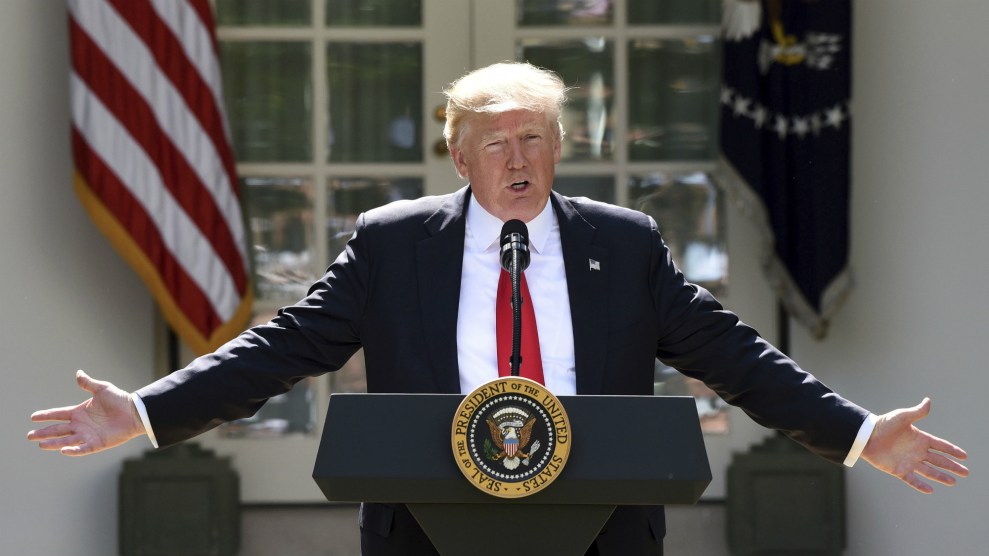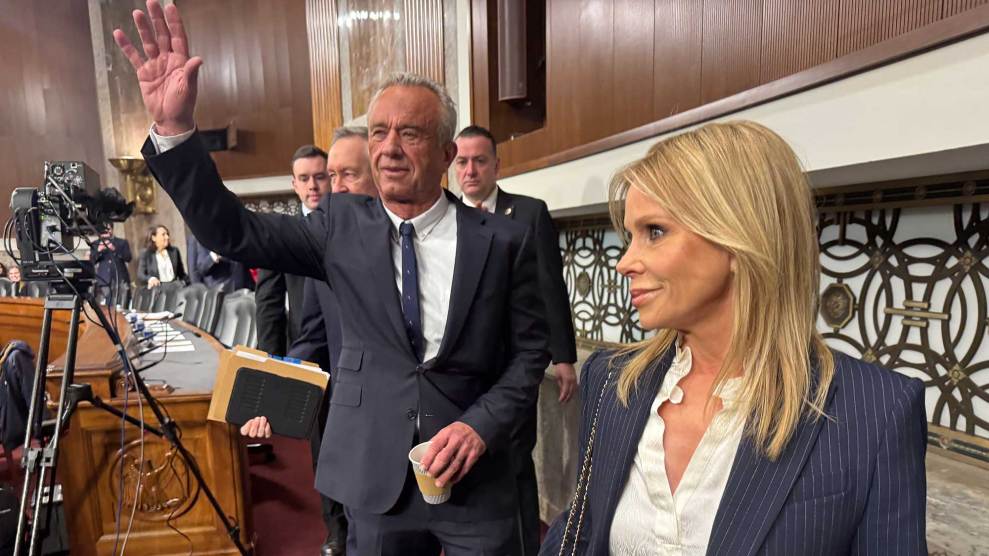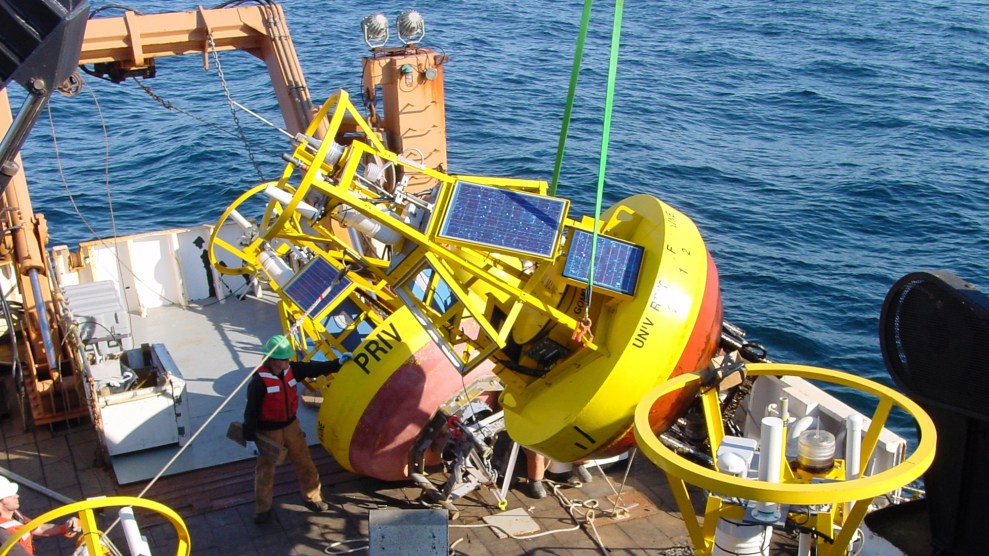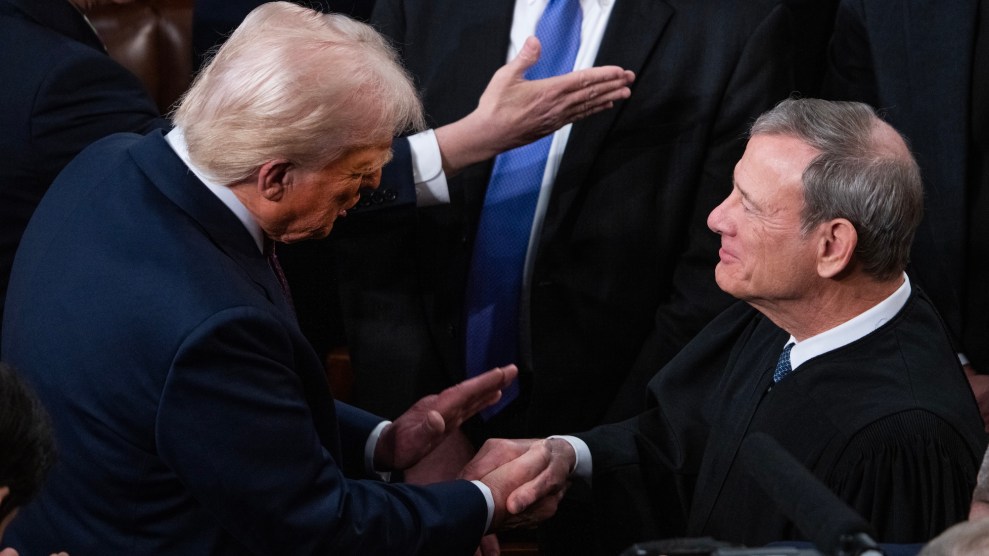
Sipa/AP Images
It seems clear now why the Trump administration fought so hard to avoid making public the details of the waivers it granted to White House staffers who might otherwise have been in violation of the president’s self-imposed ethics rules. They show that President Donald Trump, who made “drain the swamp” a campaign battle cry, has enlisted numerous swamp-dwellers—former lobbyists, consultants, corporate executives—to staff key positions in his White House and has granted them broad exemptions to work on issues directly related to their former jobs and clients.
After repeatedly slamming DC lobbyists during the campaign, Trump used one of his first executive orders to lay out ethics rules for his new administration. The January 28 order barred Trump officials from working on issues related to their former employers for at least two years, and these rules applied not only to lobbyists, but to anyone who worked for a business or organization potentially affected by federal policy decisions. The prohibitions were not absolute: Waivers would be available in certain cases.
The Trump administration initially balked when the Office of Government Ethics demanded the White House hand over the waivers it had granted. But after a standoff the administration relented late Wednesday and released about 14 waivers covering White House staffers. They make clear that Trump’s ethics rules are remarkably flexible and that his top staffers don’t need to worry too much about staying on the right side of them. On paper, Trump’s rules are similar to those imposed by President Barack Obama, but it appears that Trump is far more willing to hand out exemptions. At this point in the Obama administration, just three White House staffers had been granted ethics waivers. So far, Trump has granted 14, including several that apply to multiple people.
White House chief of staff Reince Priebus and adviser Kellyanne Conway were both granted waivers to deal with issues involving their previous employers. In the case of Priebus, this narrowly applies to the Republican National Committee. But Conway is now free to work on issues involving her ex-clients from her previous life as an operative and pollster—clients that included political campaigns, nonprofit activist groups, and corporations.
Conway’s relationships with these clients were murky to begin with; she was never required to disclose who she worked for. We do know that she repped virulently anti-immigration and anti-Muslim groups. The names of some of her corporate clients also have trickled out, including Major League Baseball, Hasbro, American Express, and Boeing. The waiver may have been granted to help smooth the way for Conway after evidence emerged that she continued to operate own her polling and consulting company even after she’d gone to work in the White House—a possible violation of conflict-of-interest laws that drew the attention of congressional Democrats who have begun probing her relationship with the company.
Conway’s waiver was not retroactive, but there is another that specifically allows White House employees to communicate freely with former employers and coworkers at media organizations—and applies back to January 20. Trump’s executive order didn’t simply prohibit any of his hires from working on matters relating to a former employer—it specifically covered “any meeting or communication relating to the performance of one’s official duties.” This means at least two of Trump’s top aides, former Breitbart News chairman Steve Bannon and his assistant Julia Hahn, would be prohibited from chatting with their former colleagues at Breitbart about anything work-related—a rule that Bannon appears not to have followed. While not named, it seems likely that protecting the Breitbart alums from ethics complaints was the aim.
Another takeaway from Trump’s waivers is that they appear to be far less restrictive than Obama administration waivers. Many Obama waivers (there were only 10 total granted to White House employees during his administration) were very narrowly tailored. For example, James Jones, Obama’s national security adviser, was granted a waiver to allow him to introduce Bill Clinton at an event for the Atlantic Council, even though Jones had previously worked for the group. John Brennan, at the time one of Obama’s deputy national security advisers, had previously worked for The Analysis Company, and he was granted a waiver to use the company’s data while investigating the so-called “Underwear Bomber” incident. Brennan was not cleared to talk to any of the company’s employees, however.
Trump’s waivers, on the other hand, are broad.
For instance, Trump granted a waiver to Michael Catanzaro, who is the president’s most senior energy policy aide, allowing him to work freely on “broad policy matters and particular matters of general applicability relating to the Clean Power Plan, the WOTUS [Waters of the United States] rule, and methane regulations.” Catanzaro worked as a registered lobbyist for several oil and gas companies as recently as January, which made the waiver necessary. On his most recent lobbying disclosure form—filed on behalf of one of his clients, natural gas company Noble Energy—Catanzaro wrote that he was working on “EPA and BLM’s proposed and final regulations covering methane emissions from new and existing oil and gas facilities.” Nearly identical language appears in his most recent lobbying disclosure on behalf of another natural gas company, Encana. In other words, Catanzaro is now making policy on the very issues he was paid by corporations to lobby on. There are no restrictions in Catanzaro’s waiver relating to his previous clients.
Another lobbyist turned Trump aide is Shahira Knight, who was previously employed as vice president of public policy for mutual fund giant Fidelity and now serves as Trump’s special assistant for tax and retirement policy. Her waiver grants her permission to work on “matters of general applicability relating to tax, retirement and financial services issues.” Fidelity’s most recent lobbying report—filed while Knight ran its lobbying shop—lists the main issue areas targeted by the company’s lobbyists: finance, retirement, banking, and taxes.
While the Obama administration reluctantly granted waivers for narrow sets of circumstances, the Trump waivers appear to be written to carefully exempt the previous lobbying work done by White House aides.
And this is just the beginning. The administration released only the waivers granted to White House employees—the release does not include waivers granted to administration officials who work for federal agencies, such as the Environmental Protection Agency or the Treasury Department. The White House will turn those waivers over to the Office of Government Ethics on Thursday, but it’s not clear when they will be made public.

















